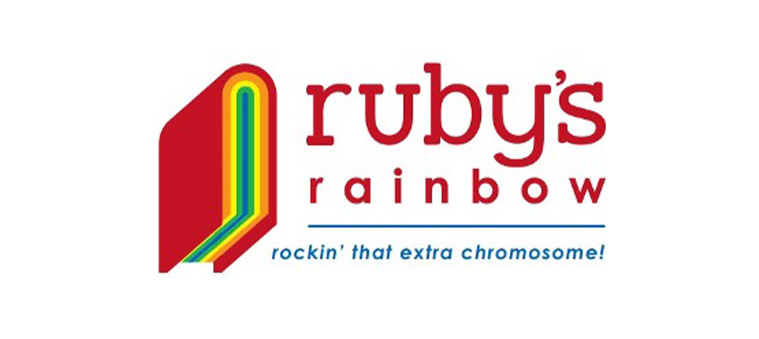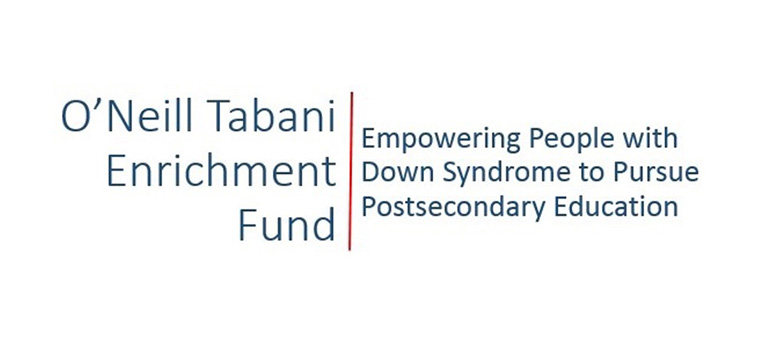ClemsonLIFE™
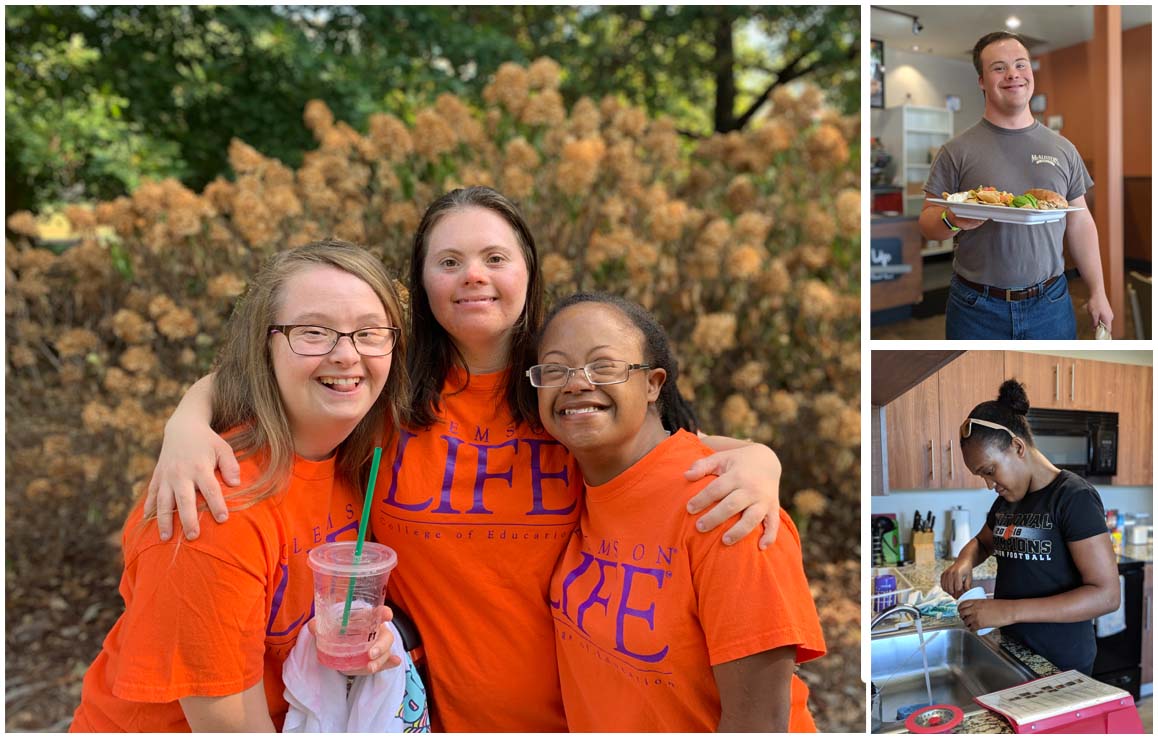
Welcome To ClemsonLIFE™
The ClemsonLIFE ™ program at Clemson University offers a collegiate experience that prepares young men and women with intellectual disabilities for competitive employment and independent living through a combination of academic coursework and career exploration. The program is designed for students who desire a post-secondary experience on a college campus. Our program incorporates functional academics, independent living, employment and social/leisure skills in a public university setting with the goal of producing self-sufficient young adults.
ClemsonLIFE Traditional Program
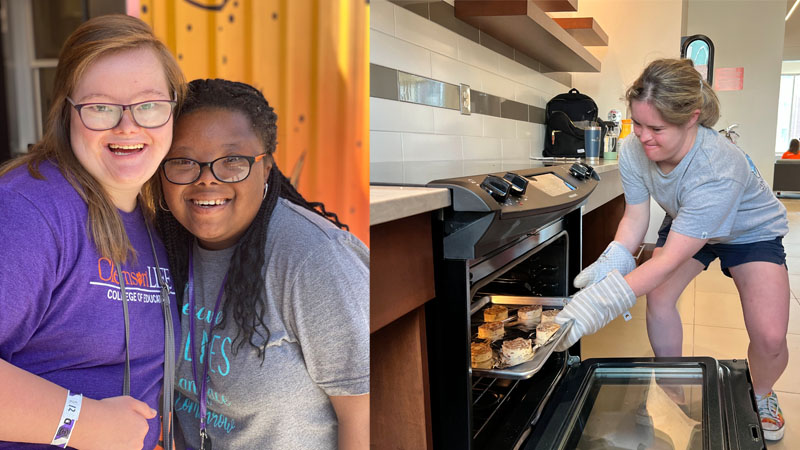
Please use the following link to apply for the ClemsonLIFE Traditional Application for the 2026-2027 school year. This application will be due December 1, 2025.
-
About the Program
The ClemsonLIFE Program offers a two-year Basic Program that incorporates functional academics, independent living, employment, social/leisure skills, and health/wellness skills in a public university setting with the goal of producing self-sufficient young adults. Additionally, the ClemsonLIFE Program offers a two-year Advanced Program for students that have demonstrated the ability to safely live independently, sustain employment, and socially integrate during the Basic Program. The Advanced Program progresses with an emphasis on workplace experience, community integration, and independent living with transitionally reduced supports. Students who successfully complete the Basic and/or Advanced program will receive a corresponding certificate of post-secondary education.
We Believe
- Young adults go through a similar development process that requires certain activities, experience and support.
- Young adults must develop skills and an understanding about themselves and the world around them in order to fully participate in society and to become successful, contributing adults.
- Higher education is a vehicle for self-empowerment and access to social networks, employment, and independence.
- Group membership provides essential motivation and support for learning and participation in community life.
ClemsonLIFE Courses
- Functional Mathematics, Banking and Budgeting
- Functional Literacy
- Independent Living Skills
- Social Skills
- Self Advocacy and Safety
- Health and Wellness
- Employment Skills
- Supervised Job Placement/Internship
Independent Living
- Students live in four bedroom apartments on campus
- Supervision is provided by an on-site Independent Living Assistant (ILA) in each student apartment
- Independent living skills are taught in class, at the apartments, and then reinforced by ILAs
- Students are taught how to utilize public transportation
- Time management, prioritizing, and scheduling
Counseling
- Counselors assist students and resident assistants with independent living skills
- Weekly group counseling sessions with students
- Individual counseling session available, upon student request
Employment
- Job placements (on and off campus) with on-site supervision
- Weekly jobsite performance evaluations
- Classroom instruction on employment skills
Employment Resources Provided
- Each student will be given an electronic copy of the following upon graduation: resume, reference list, and other resources (i.e. tips for an interview, how to deposit a paper check, common employment accommodations)
Socialization/Leisure
- Enrollment in Clemson University leisure skills course
- Involvement in various campus student organizations
- Community involvement
- Interaction with Clemson University students from all across campus
- Mentor Program
Health and Wellness
- Nutrition and cooking classes
- Personal fitness training
- Personal and universal hygiene practices
- Characteristics of healthy relationships
-
Applications and Admissions
- Documentation of an intellectual disability, with significant limitations in intellectual functioning and in adaptive behavior, as defined by the American Association on Intellectual and Developmental Disabilities (AAIDD). “Intellectual disability is a disability characterized by significant limitations both in intellectual functioning and in adaptive behavior as expressed in conceptual, social, and practical adaptive skills. This disability originates before the age of 18” (AAIDD)
- Primary disability must be cognitive, not behavioral or emotional
- Was eligible for IDEA services while in school; has/had an IEP
- Has the ability to independently self-administer and manage medication, specialized dietary, and/or medical needs. Note: ClemsonLIFE personnel are not available to manage/administer medication and take no responsibility for specialized diets or medical needs
- Reading ability is functional – able to respond to emails, texts, and read functional lists such as a grocery list (approx. 3rd grade).
- Has basic mathematics understanding; can use a calculator
- Can utilize technology (cell phone, laptop, etc.) on a basic level
- Age is between 18-26 years old upon admission to the program
- Demonstrates independence, motivation, and stability
- Can function independently for a sustained period of time
- Likes to be around people; sociable
- Able to handle changes in routine; can be flexible in fluctuating circumstances
- Not defiant toward authority; can take direction
- Demonstrates the ability to accept personal responsibility for actions and maintains respect for self and others
- Likes to learn
- Has the potential to be successful in competitive employment situations. We highly recommend employment, or at least volunteer, experience before entering the program.
- Has the desire and motivation to participate in a college experience
- Has parents who will support his/her independence
Application Process
- We recommend prospective students and families attend a program open house. This one-day program will allow students and families to determine if the ClemsonLIFE program will be a good fit.
- Complete the online application.
- Select payment portal tab and pay application fee.
- Eligible applicants may be invited to attend an on-campus interview during the months of January and February. Decisions are released in March.
- The application for 2025-2026 ClemsonLIFE Traditional Program is closed.
- The application for 2026-2027 ClemsonLIFE Traditional Program Application opens on June 1, 2025, and will close December 1, 2025. – Apply here!
Admission Requirements
- Psychological Report within the last 3 years (tests include: IQ, Adaptive, Social/Emotional)
- Transcript
- Most recent IEP
- Behavior Records (if no records exist, please send a letter from school on official letterhead stating so)
- 3 Letters of Recommendation
- Medical Physical
-
Open House
Open House dates:
- March 7, 2026
- More details will be emailed the week of.
- Open House registration typically will reach capacity within a few weeks. If you are unable to register, please email clemsonlife@clemson.edu to be put on the waitlist.
-
Daily Schedule
Monday and Wednesday
- 8:30 a.m. – LIFE: Applied Math / Grocery Shopping
- 10:00 a.m. – LIFE: Advising
- 12:00 p.m. – Lunch
- 1:00 p.m. – Social Skills/Internship
- 5:30 p.m. – Dinner
Tuesday and Thursday
- 9:00 a.m. – LIFE: Apartment Class
- 11:00 a.m. – LIFE: Self Advocacy
- 12:00 p.m. – Lunch
- 1:30 p.m. – Employment/ Technology
- 4:00 p.m. – Workouts
- 5:30 p.m. – Dinner
Friday
- 8:30 a.m. – Community Involvement / Explore Clemson
- 12:00 p.m. – Lunch
- 1:00 p.m. – Leisure Skills/Internship
Friday Afternoon – Sunday Evening
- Activities, Social, Leisure, and Recreation Events/Outings Planned by Independent Living Assistants.
*This is a sample schedule that is subject to change.
Social Leisure/Recreational Opportunities
All students attend a Clemson University traditional one to four hours course one to two days per week. They attend a specialized fitness class at Fike Recreation center one to two times a week. Mentors also meet with students on a weekly basis to support and encourage LIFE students. The 650+ volunteers will be available for a plethora of activities with our students.
- Tailgates and football games on Saturdays
- Soccer, basketball, baseball, volleyball and other sporting events
- Intramural Unified Sports
- Students are buddies to young children with disabilities at TOP Soccer and Challenger Baseball.
- Students have the opportunity to participate on the Tiger Sharks Swim Team and Equine Therapy.
- Campus-wide activities such as movies, concerts, shows, First Friday parade, homecoming events, etc.
- Students join and attend university clubs and student organizations functions.
-
Calendar
The ClemsonLIFE Program follows the University academic calendar, except for University exam weeks.
Fall 2025
- July 21 – Tiger Town Tour (new incoming students)
- August 13 – Hospitality Certificate Program Move In
- August 14 - Hospitality Certificate Program Orientation
- August 14 - Advanced Program Move In
- August 15 - Advanced Program Orientation
- August 17- Basic Program Move In
- August 18 – Basic Program Orientation
- August 20 - Fall Classes Begin
- September 1 – Labor Day – University Closed
- October 13-14 –Fall Break
- October 18 – ClemsonLIFE Family/Alumni Tailgate
- October 25 – ClemsonLIFE Fall Open House
- November 26-28 - Thanksgiving Break
- December 5 - Last Day of Classes
- December 6 – January 6 - Holiday Break
Spring 2026
- January 7 - Spring Classes Begin
- January 19 - MLK Holiday - University Closed (no classes)
- March 7 – Spring Open House
- March 16-20 - Spring Break
- April 3 – ClemsonLIFE Talent Show
- April 24 - Last Day of Classes
- April 25 - Move Out Day and ClemsonLIFE Graduation Ceremony
-
Frequently Asked Questions
What is the mission of the ClemsonLIFE program?
ClemsonLIFE (Learning is for Everyone) offers a collegiate experience that prepares young men and women with intellectual disabilities for competitive employment and independent living through a combination of academic coursework and career exploration.
How does the ClemsonLIFE Program differ from other post-secondary opportunities?
ClemsonLIFE core principles support the concept that enhancing academic, social, employment, and life skills will better prepare students with disabilities to lead full and productive lives. It is a comprehensive residential college experience designed to raise the expectations and skill levels of the students admitted to the program.
Who will be teaching the coursework?
Traditional college courses are taught by Clemson faculty, while functional academics are taught by staff with teacher certification in the area of special education.
What are admission criteria?
An applicant must be between the ages of 18 and 26 years old upon admission to the program and have an intellectual disability characterized by significant limitations both in intellectual functioning and in adaptive behavior as expressed in conceptual, social, and practical adaptive skills. Applicants must have a strong desire to become an independent adult and possess sufficient emotional stability and maturity to successfully participate in the program.
How many applicants are offered admission each year?
Twelve full time students will be admitted each year for fall semester.
Is this a residential or commuter program?
ClemsonLIFE is a residential program providing instruction and practical experience in independent living skills. All students enrolled in the Basic Program live in on-campus apartments under the supervision on an Independent Living Assistant (ILA). Students in the Advanced Program live in apartments off-campus, and are closely monitored by Transition Specialists who assist them with independent living skills.
What is the length of the program?
The Basic Program is designed to be completed in two years. Admittance into the Advanced Program is by invite-only, and provides two additional years of transition support to help facilitate independent living.
What kind of certificate do students get?
Students successfully completing the program will receive a certificate of post-secondary education (not an accredited college degree).
Will there be student mentors?
Each ClemsonLIFE student is provided an individual peer student mentor drawn from throughout the campus. Mentors assist ClemsonLIFE students both academically and socially, as well as helping them fully integrate into the college community.
Are there opportunities for scholarships or grants?
There are a variety of different funding opportunities including FAFSA, Pell grants, South Carolina Commission on Higher Education grants, Vocational Rehabilitation tuition stipends, ClemsonLIFE grant-in-aids, and other private scholarships.
How do I schedule a campus tour?
All interested applicants should attend one of our open houses that are held each semester. Sessions are typically offered in March and October. To reserve a space at an open house session, please register online. To schedule a campus tour, please visit the University campus tours page and fill out the registration form.
-
Costs
ClemsonLIFE is dedicated to providing a structured, high-quality, well-supervised program focused on vocational and independent living for young adults with disabilities. The cost per-semester is listed below for the 2025/2026 school year
ClemsonLIFE Fees (Basic Program)
The below fees are invoiced directly from the ClemsonLIFE program:Program Fees
Covers costs associated with the ClemsonLIFE program (i.e. Operation Costs and Staff/Instructor Salaries) - $16,000Student Budget Fees
Covers apartment groceries, laundry, attendance at sporting or theater events, field trips, etc. - $1,575University Fees
The below fees are paid directly to Clemson University and are included on the University bill:Housing
Covers rent, utilities, cable and Internet. All students currently live in Douthit Hills apartments on campus. - $5,769Academic Fee
Covers tuition fees. All students are required to enroll in a one credit hour Clemson University leisure skills class.- $630/credit hour for SC Residents
- $1,782/credit hour for Non-Residents
Meal Plan (Required)
The ClemsonLIFE meal plan is designed specifically for the ClemsonLIFE students for dining hall access.- $2,212 per semester (150 meals + 200 paw points)
- Miscellaneous Fees - $476 per semester
- Health Fee - $182 per semester
*All fees reflect the costs for 2025/2026 and are subject to change.
ClemsonLIFE Fees (Advanced Program)
The below fees are invoiced directly from the ClemsonLIFE program:Program Fees
Covers costs associated with the ClemsonLIFE program (i.e. Operation Costs and Staff/Instructor Salaries) - $11,000Student Budget Fees
Students work in the Clemson Community and with ClemsonLIFE staff to define a budget that reflects the student's monthly income – Varies per studentUniversity Fees
The below fees are paid directly to Clemson University and are included on the University bill:Academic Fee
Covers tuition fees. All students are required to enroll in a one credit hour Clemson University leisure skills class.- $630/credit hour for SC Residents
- $1,782/credit hour for Non-Residents
Meal Plan (Optional)
- $1,417 per semester (75 meals + 300 paw points)
- $833 per semester (30 meals + 300 paw points)
- Miscellaneous Fees - $476 per semester
- Health Fee - $182 per semester
*All fees reflect the costs for 2025/2026 and are subject to change.
-
Financial Aid
Financial aid is available for students with intellectual disabilities attending post-secondary programs. The following are resources to explore:
Federal Student Aid: Students may be eligible for Federal Pell Grants receiving up to $7,395 per year. Here are resources on the steps to filling out the FAFSA form and things you need to know before filling out the FAFSA form.
South Carolina Commission on Higher Education- Transition Program
- South Carolina Commission on Higher Education- Transition Program Scholarship: $15,000. If you are a South Carolina resident we encourage you to complete your FAFSA so you will receive the CTP scholarship from the South Carolina Commission on Higher Education. This scholarship is NOT need based. The requirements to receive scholarship funds are 1) must be a US citizen or legal permanent resident, 2) a legal SC resident, and 3) be enrolled in a College Transition Program.
- South Carolina Commission on Higher Education- Transition Program Grant-in-Aid: up to $10,000. If you are a South Carolina resident we encourage you to complete your FAFSA so you may be eligible to receive the CTP grant-in-aid from the South Carolina Commission on Higher Education. The requirements to receive grant-in-aid funds are 1) must be a US citizen or legal permanent resident, 2) a legal SC resident, 3) be enrolled in a College Transition Program, 4) completed the Free Application for Federal Student Aid (FAFSA), and 5) be considered to have ‘need’ as determined by Title IV.
South Carolina Vocational Rehabilitation Department: Students may be eligible for sponsorships.
Some independent organizations and groups have offered scholarship money to select students.
Ruby's Rainbow: Our goal at Ruby's Rainbow is to grant scholarships to adults with Down Syndrome seeking post-secondary education, enrichment or vocational classes who feel that higher education is the right choice for them.
O’Neill Tabani Enrichment Fund: The mission of the O’Neill Tabani Enrichment Fund is to offer financial assistance to young adults with Down Syndrome – 18 and older – who are continuing to enrich their lives by taking classes or enrolling in post-secondary educational programs.
CSS Profile: The CSS form is not mandatory, but if you would like to be considered by ClemsonLIFE for Grant-in-aids you will have to fill out the form. Clemson University’s School Code is 5111. Cost for the CSS Profile is $25 for the initial application and one college or program report. Each additional college report is $16. More information can be found on the College Board website.
Online Guide to Scholarships and Resources for Students With Disabilities
-
Resources
College is not for everyone. However, many students desire a college experience, including students with intellectual disabilities. It is for this reason that many colleges and universities now offer Comprehensive Postsecondary Transition Programs, like ClemsonLIFE. These programs offer inclusive social activities; participation in college courses; along with instruction on independent living skills, employment skills, and social skills with the goal of independent living and gainful employment to the greatest extent possible for each student.
Think College is a great resource for families of students with intellectual disabilities considering college. For a searchable database of Available Comprehensive Postsecondary Transition Programs, see ThinkCollege Database.
Online Resources
- Clemson University Student Disability Services
- Clemson University College of Education
- South Carolina Vocational Rehabilitation Department
- South Carolina Commission for the Blind
- ED.gov – Federal Pell Grant Program
- ED.gov – Federal Supplemental Educational Opportunity Grant (FSEOG) Program
- National Down Syndrome Society
-
ClemsonLIFE Research
Books/Chapters
- Ryan, J. B., Randall, K. & Walters, E. (in press). How to Create an Inclusive Post-Secondary Education Program: A Framework for Supporting Students with Intellectual Disabilities on College Campuses.
- Randall, K., Ryan, J. B., & *Carlson, A., (2024). Students’ perception of an American post-secondary education program’s value in preparing them for employment, independent living, and social activities. In Shevlin, M. & Rose, R. (Eds.),Challenging Assumptions: Voices from Marginalised Communities (International Perspectives on Inclusive Education). 203-216. Emerald Publishing. IBSN - 1837977208.
- Ryan, J. B. & Mooney, P. (2024). The Special Educator’s Guide to Behavior Management. Routledge. DOI:10.4324/9781003526469
Journal Articles
- Randall, K. N., Drew, H.*, Gilman, E. S.*, & Dixon, E. (Accepted). Employment, Assistive Technology, and Individuals with Intellectual and Developmental Disabilities: A Qualitative Study. Journal of Applied Research in Intellectual Disabilities. https://www.doi.org/10.1111/jar.13306
- Randall, K. N., Hopkins, C. S., & Drew, H.* (2024). Menstrual Education Programs for Girls and Young Women with Intellectual and Developmental Disabilities: A Systematic Review. Journal of Applied Research in Intellectual Disabilities. 37(4), 1-13. https://www.doi.org/10.1111/jar.13264
- Hostetter, H.*, Naser, M. Z., Randall, K. N., & Murray-Tuite, P. (2024). Evacuation preparedness and intellectual disability: Insights from a university fire drill. Journal of Building Engineering, 108578. https://doi.org/10.1016/j.jobe.2024.108578
- Randall, K., & Ryan, J. B. (2024). What is self-determination and why it matters. Re-Thinking Behavior, 7(2), 28-35. Retrieved from: https://www.pageturnpro.com/Midwest-Symposium-for-Leadership-in-Behavior-Disorders/110520-ReThinking-Behavior-Winter-2024/flex.html#page/31
- Randall, K. N. & McKown, G.* (2024). Perceived impact of COVID-19 on adults with intellectual and developmental disability: A qualitative study. Journal of Intellectual Disabilities, 28(1) 118-136. https://doi.org/10.1177/17446295221146352
- Randall, K. N., Hirsch, S. E., & Allen, A. A. (2023). Examining the effectiveness of multimedia instruction to teach pedestrian signs to individuals with intellectual disabilities. Journal of Special Education Apprenticeship, 12(2), 79-96. https://scholarworks.lib.csusb.edu/josea/vol12/iss2/8/
- Randall, K. N., Bernard, J., & Durah, L. (2023). Impact of Employment Status on Quality of Life for Individuals with Intellectual or Developmental Disability. Journal of Applied Research in Intellectual Disabilities, 36(2), 270-280. https://doi.org/1111/jar.13053
- *Stierle, J., Ryan, J. B., Katsiyannis, A., & Mims, P. (2023). Using video prompting and modeling on mobile technology to teach daily living skills: A systematic review and meta-analysis. Advances in Neurodevelopmental Disorders, 7, 491-501. https://doi.org/10.1007/s41252-022-00273-7
- Ryan, J. B. (2023). Expert advice: ClemsonLIFE story. In S. Friedman (Ed.), The Essential Guide for Families with Down Syndrome. (pp. 160-165). Peavine Press.
- *Randall, K. N., Ryan, J. B., Hirsch, S., Allen, A. (2022). A Self-Monitoring Intervention to Improve the self-determination of individuals with intellectual and developmental disability in a post-secondary educational program. Focus on Autism and Other Developmental Disabilities. 38(2), 124-136. https://doi.org/10.1177/10883576221121637
- *Randall, K. N., Ryan, J. B., *Stierle, J. N. *Walters (2021). Meal planner application efficacy for increasing meal planning independence in individuals with intellectual disability. Education and Training in Autism and Developmental Disabilities. 56(2), 225- 239. https://www.proquest.com/openview/01c4c6b8f932139c791779a8d1613788/1?pq-origsite=gscholar&cbl=2032023
- *Walters, S., *Stierle, J., *Stockwell, D., *Carlson, A., & Ryan, J.B., (2021). Efficacy of video prompting using mobile technology to teach employment tasks to individuals with intellectual disability. Journal of Inclusive Postsecondary Education. 3(1), 1-21. https://doi.org/10.1080/21532974.2021.1995796
- *Randall, K. N., Ryan, J. B., *Stierle, J. N. *Walters, & S. Bridges, W. (2021). Evaluating and Enhancing Driving Skills for Individuals with Intellectual Disabilities through Simulator Training.Focus on Autism and Other Developmental Disabilities, 36(4), 191-200. https://doi.org/10.1177/1088357620985458
- *Randall, K. N., *Johnson, F., *Adams, S. E., *Kiss, C. W., & Ryan, J. B. (2020). Use of iPhone task analysis application to increase employment related chores for individuals with intellectual disabilities. Journal of Special Education Technology, 35(1), 26-36. https://doi.org/10.1177/0162643419836410
- Ryan, J. B., *Randall, K.N., *Walters, E., & *Morash-MacNeil, V. (2019). Employment and independent living outcomes of a mixed model post-secondary education program for young adults with intellectual disabilities. Journal of Vocational Rehabilitation, 50, 61-72. https://doi.org/10.3233/JVR-180988
- *Morash-MacNeil, V., *Johnson, F., & Ryan, J. B. (2018). Effectiveness of assistive technology for individuals with intellectual disability in the workplace: A meta-analysis. Journal of Special Education Technology, 33(1), 15-26. https://doi.org/10.1177/0162643417729166
- Collins, J. C., Ryan, J.B., Katsiyannis, A., Barrett, D. & Yell, M. (2014). Use of portable electronic assistive technology to improve independent job performance of young adults with an intellectual disability. Journal of Special Education Technology, 29(3),15-30. https://doi.org/10.1177/016264341402900302
- Hawkins, B.L., Stegall, J.B., Weber, M. & Ryan J.B. (2012). The Influence of a Yoga Exercise Program for Young Adults with Intellectual Disabilities. International Journal of Yoga, 5, 151-156. https://doi.org/10.4103%2F0973-6131.98244
- Hughes, E., Green, J. & Ryan, J.B. (2011). The use of assistive technology to improve time management skills of a young adult with an intellectual disability. Journal of Special Education Technology, 26(3), 13-20. https://doi.org/10.1177/016264341102600302
(* Indicates co-author was a student at time of preparation)
-
General Information
ClemsonLIFE | 101 Gantt Circle | Suite G-01 | Clemson University | Clemson, SC 29634 | 864-656-0501 | clemsonlife@g.clemson.edu
ClemsonLIFE Hospitality Certificate Program
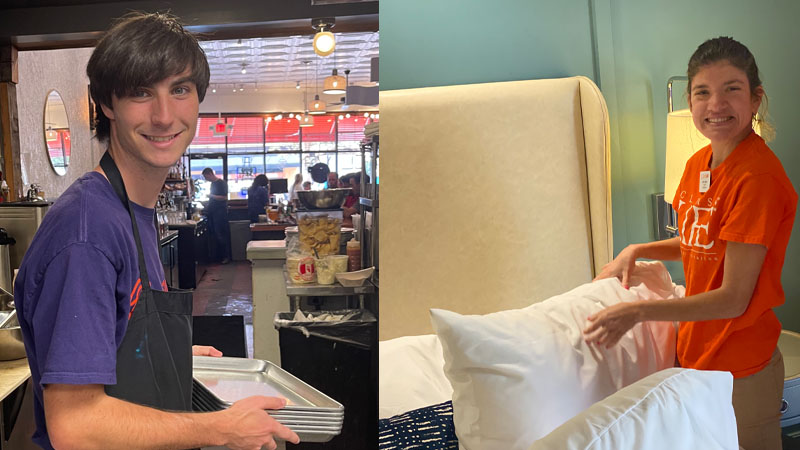
Please use the following link to apply for the ClemsonLIFE Hospitality Certificate Program Application for the 2026-2027 school year. This application will be due September 15, 2025.
-
About the Program
ClemsonLIFE also offers an employment-based program, the Hospitality Certificate Program (HCP). HCP students will receive a combination of classroom and employment experiences to prepare for employment in the Hospitality Industry. This two-year program provides graduates with a ClemsonLIFE Hospitality Certificate while having the opportunity to receive other training/certifications (e.g., CPR/AED, OSHA 10-Hour).
We Believe
- Young adults go through a similar development process that requires certain activities, experience and support.
- Young adults must develop skills and an understanding about themselves and the world around them in order to fully participate in society and to become successful, contributing adults.
- Higher education is a vehicle for self-empowerment and access to social networks, employment, and independence.
- Group membership provides essential motivation and support for learning and participation in community life.
Courses
- ClemsonLIFE HCP Academic Support
- PRTM 1980 - Employment and Hotel Operation Skills 1
- PRTM 2980 - Employment and Hotel Operation Skills 2
- PRTM 3980 - Employment and Food Service Skills
- PRTM 4980 - Professional Development in Tourism and Hospitality
- Work-Based Skills Lab
- Work-Based Paid Internship
- Adaptive Sports
Employment
- Job placements (on and off campus) with on-site supervision
- Jobsite performance evaluations
- Classroom instruction on employment skills
Socialization/Leisure
- Involvement in various campus student organizations
- Community involvement
- Interaction with Clemson University students from all across campus
- Mentor Program
Employment Resources Provided
- Each student will be given an electronic copy of the following upon graduation: resume, reference list, and other resources
Counseling and Wellness
- Weekly group counseling sessions with students
- Individual counseling sessions available, upon student request
- Personal and universal hygiene practices
- Characteristics of healthy relationships
- Access to FIKE gym membership
-
Applications and Admissions
- Applicants must be between the ages of 18-30 upon acceptance.
- The applicant must have a mild cognitive and/or developmental disability that interferes with their academic performance according to the American Association on Intellectual and and Developmental Disabilities (AAIDD).
- The applicant must have sufficient emotional and independent stability to participate in all aspects of ClemsonLIFE HCP.
- The applicant should be able to safely function independently for at least 4–5-hour blocks of time including Academic Coursework, Extracurricular Activities, Employability/Work Internships, etc.
- The applicant must demonstrate the ability to accept responsibility for his/her actions and maintain respect for him/her and others and have no history of disruptive or aggressive behaviors. Note: ClemsonLIFE HCP does not have the personnel necessary to manage behavioral issues or independent living concerns.
- The applicant must be able to get to and from campus and worksites on his/her own while providing his/her own means of transportation (i.e. bike, bus, scooter, Uber, etc.).
- The applicant must be independent in handling his/her own medication, specialized dietary and/or medical needs, as well as maintaining personal hygiene. Note: There is no personnel available to manage/administer medication. The ClemsonLIFE HCP staff takes no responsibility for specialized diets or medical needs.
- The applicant must demonstrate the desire to attend ClemsonLIFE Hospitality Certificate Program and adhere to the ClemsonLIFE policies regarding attendance and participation in the ClemsonLIFE Hospitality Certificate Program coursework and traditional Clemson University classes.
- The applicant must have the potential to successfully achieve his/her goals within the context of the ClemsonLIFE Hospitality Certificate program’s content and setting.
Application Process
- We recommend prospective students and families attend a program open house. This one-day program will allow students and families to determine if the ClemsonLIFE HCP program will be a good fit.
- Complete the online application.
- Select payment portal tab and pay application fee.
- Eligible applicants may be invited to attend an on-campus interview during the months of September and October. Decisions are made in November.
- The 2025-2026 ClemsonLIFE Hospitality Certificate Program Application for admission is closed.
- The application for 2026-2027 ClemsonLIFE Hospitality Certificate Program Application opens on June 1, 2025, and will close September 15, 2025. – Apply here!
Admission Requirements
- Psychological Report within the last 3 years (tests include: IQ, Adaptive, Social/Emotional)
- Transcript
- Most recent IEP
- Behavior Records (if no records exist, please send a letter from school on official letterhead stating so)
- 3 Letters of Recommendation
- Medical Physical
-
Open House
Open House dates:
- March 7, 2026
- More details will be emailed the week of.
- Open House registration typically will reach capacity within a few weeks. If you are unable to register, please email clemsonlife@clemson.edu to be put on the waitlist.
-
Daily Schedule
Monday and Wednesday:
- 8:30 a.m. - Advising
- 9:00 a.m. - PRTM academic class
- 12:00 p.m. - Lunch
- 1:15 p.m. - Work-Based skills lab
Tuesday and Thursday:
- 8:30 a.m. - Advising
- 9:00 a.m. - ClemsonLIFE Academic Support
- 12:00 p.m. - Lunch
- 1:00 p.m. - Internship
Friday
- 9:00 a.m. - Internship
- 12:00 p.m. - Lunch
- 1:00 p.m. - Advising/Counseling/Academic Support
*Internship hours increase during Year Two.
*This is a sample schedule that is subject to change.Social/Leisure/Recreation Opportunities
Mentors also meet with students on a weekly basis to support and encourage ClemsonLIFE HCP students. The 650+ Volunteers will be available for a plethora of activities with our students.
- Tailgates and football games on Saturdays
- Soccer, basketball, baseball, volleyball and other sporting events
- Intramural Unified Sports
- Students are buddies to young children with disabilities at TOP Soccer and Challenger Baseball.
- Students have the opportunity to participate on the Tiger Sharks Swim Team and Equine Therapy.
- Campus-wide activities such as movies, concerts, shows, First Friday parade, homecoming events, etc.
- Students join and attend university clubs and student organizations functions.
-
Calendar
The ClemsonLIFE Program follows the University academic calendar, except for University exam weeks.
Fall 2025
- July 21 – Tiger Town Tour (new incoming students)
- August 13 – Hospitality Certificate Program Move In
- August 14 - Hospitality Certificate Program Orientation
- August 14 - Advanced Program Move In
- August 15 - Advanced Program Orientation
- August 17- Basic Program Move In
- August 18 – Basic Program Orientation
- August 20 - Fall Classes Begin
- September 1 – Labor Day – University Closed
- October 13-14 –Fall Break
- October 18 – ClemsonLIFE Family/Alumni Tailgate
- October 25 – ClemsonLIFE Fall Open House
- November 26-28 - Thanksgiving Break
- December 5 - Last Day of Classes
- December 6 – January 6 - Holiday Break
Spring 2026
- January 7 - Spring Classes Begin
- January 19 - MLK Holiday - University Closed (no classes)
- March 7 – Spring Open House
- March 16-20 - Spring Break
- April 3 – ClemsonLIFE Talent Show
- April 24 - Last Day of Classes
- April 25 - Move Out Day and ClemsonLIFE Graduation Ceremony
-
Frequently Asked Questions
What is the Hospitality Certificate Program?
Hospitality Certificate Program provides young adults with cognitive disabilities the skills and competencies that will lead to a successful and fulfilling career in the Hospitality Industry. HCP students will receive a combination of classroom and employment experiences to prepare them for employment in the Hospitality Industry.
What are the specific jobs that students will be trained for in this program (both restaurant and hotel jobs)?
Hotel front of house - public area cleaner, receptionist; Hotel back of house - Housekeeper and houseperson; Restaurant front of house - greeter, food runner, busser, waiter/waitress; Restaurant back of house - steward/dishwasher. The jobs will continue to build depending on each individual student and their abilities during their second year.
Can students have a job outside of the program?
Yes! Students can work after 3 pm during the week or on the weekends at a job that they find themselves.
-
Costs
The cost per-semester is listed below for the 2025/2026 school year.
ClemsonLIFE Fees (Hospitality Certificate Program)
The below fees are invoiced directly from the ClemsonLIFE program:Program Fees
Covers costs associated with the ClemsonLIFE program (i.e. Operation Costs and Staff/Instructor Salaries) - $10,000Student Budget Fees
- Covers apartment groceries, laundry, attendance at sporting or theater events, field trips, etc. - Varies per student
- One-time textbook fee - $250
University Fees
The below fees are paid directly to Clemson University and are included on the University bill:Covers tuition fees. All students are required to enroll in a three-hour credit hour Clemson University PRTM class outlined by the HCP program.
- $630/credit hour for SC Residents - $1,890 per semester for SC Residents
- $1,782/credit hour for Non-Residents - $5,346 per semester for Non-Residents
Meal Plan (Optional for HCP)
- $1,417 per semester (75 meals + 300 paw points)
- $833 per semester (30 meals + 300 paw points)
- Miscellaneous Fees - $476 per semester
- Health Fee - $182 per semester
*All fees reflect the costs for 2025/2026 and are subject to change.
-
Financial Aid
Financial aid is available for students with intellectual disabilities attending post-secondary programs. The following are resources to explore:
Federal Student Aid: Students may be eligible for Federal Pell Grants receiving up to $7,395 per year. Here are resources on the steps to filling out the FAFSA form and things you need to know before filling out the FAFSA form.
South Carolina Commission on Higher Education- Transition Program
- South Carolina Commission on Higher Education- Transition Program Scholarship: $15,000. If you are a South Carolina resident we encourage you to complete your FAFSA so you will receive the CTP scholarship from the South Carolina Commission on Higher Education. This scholarship is NOT need based. The requirements to receive scholarship funds are 1) must be a US citizen or legal permanent resident, 2) a legal SC resident, and 3) be enrolled in a College Transition Program.
- South Carolina Commission on Higher Education- Transition Program Grant-in-Aid: up to $10,000. If you are a South Carolina resident we encourage you to complete your FAFSA so you may be eligible to receive the CTP grant-in-aid from the South Carolina Commission on Higher Education. The requirements to receive grant-in-aid funds are 1) must be a US citizen or legal permanent resident, 2) a legal SC resident, 3) be enrolled in a College Transition Program, 4) completed the Free Application for Federal Student Aid (FAFSA), and 5) be considered to have ‘need’ as determined by Title IV.
South Carolina Vocational Rehabilitation Department: Students may be eligible for sponsorships.
Some independent organizations and groups have offered scholarship money to select students.
Ruby's Rainbow: Our goal at Ruby's Rainbow is to grant scholarships to adults with Down Syndrome seeking post-secondary education, enrichment or vocational classes who feel that higher education is the right choice for them.
O’Neill Tabani Enrichment Fund: The mission of the O’Neill Tabani Enrichment Fund is to offer financial assistance to young adults with Down Syndrome – 18 and older – who are continuing to enrich their lives by taking classes or enrolling in post-secondary educational programs.
CSS Profile: The CSS form is not mandatory, but if you would like to be considered by ClemsonLIFE for Grant-in-aids you will have to fill out the form. Clemson University’s School Code is 5111. Cost for the CSS Profile is $25 for the initial application and one college or program report. Each additional college report is $16. More information can be found on the College Board website.
Online Guide to Scholarships and Resources for Students With Disabilities
-
Resources
College is not for everyone. However, many students desire a college experience, including students with intellectual disabilities. It is for this reason that many colleges and universities now offer Comprehensive Postsecondary Transition Programs, like ClemsonLIFE. These programs offer inclusive social activities; participation in college courses; along with instruction on independent living skills, employment skills, and social skills with the goal of independent living and gainful employment to the greatest extent possible for each student.
Think College is a great resource for families of students with intellectual disabilities considering college. For a searchable database of Available Comprehensive Postsecondary Transition Programs, see ThinkCollege Database.
Online Resources
- Clemson University Student Disability Services
- Clemson University College of Education
- South Carolina Vocational Rehabilitation Department
- South Carolina Commission for the Blind
- ED.gov – Federal Pell Grant Program
- ED.gov – Federal Supplemental Educational Opportunity Grant (FSEOG) Program
- National Down Syndrome Society
-
ClemsonLIFE Research
Books/Chapters
- Ryan, J. B., Randall, K. & Walters, E. (in press). How to Create an Inclusive Post-Secondary Education Program: A Framework for Supporting Students with Intellectual Disabilities on College Campuses.
- Randall, K., Ryan, J. B., & *Carlson, A., (2024). Students’ perception of an American post-secondary education program’s value in preparing them for employment, independent living, and social activities. In Shevlin, M. & Rose, R. (Eds.),Challenging Assumptions: Voices from Marginalised Communities (International Perspectives on Inclusive Education). 203-216. Emerald Publishing. IBSN - 1837977208.
- Ryan, J. B. & Mooney, P. (2024). The Special Educator’s Guide to Behavior Management. Routledge. DOI:10.4324/9781003526469
Journal Articles
- Randall, K. N., Drew, H.*, Gilman, E. S.*, & Dixon, E. (Accepted). Employment, Assistive Technology, and Individuals with Intellectual and Developmental Disabilities: A Qualitative Study. Journal of Applied Research in Intellectual Disabilities. https://www.doi.org/10.1111/jar.13306
- Randall, K. N., Hopkins, C. S., & Drew, H.* (2024). Menstrual Education Programs for Girls and Young Women with Intellectual and Developmental Disabilities: A Systematic Review. Journal of Applied Research in Intellectual Disabilities. 37(4), 1-13. https://www.doi.org/10.1111/jar.13264
- Hostetter, H.*, Naser, M. Z., Randall, K. N., & Murray-Tuite, P. (2024). Evacuation preparedness and intellectual disability: Insights from a university fire drill. Journal of Building Engineering, 108578. https://doi.org/10.1016/j.jobe.2024.108578
- Randall, K., & Ryan, J. B. (2024). What is self-determination and why it matters. Re-Thinking Behavior, 7(2), 28-35. Retrieved from: https://www.pageturnpro.com/Midwest-Symposium-for-Leadership-in-Behavior-Disorders/110520-ReThinking-Behavior-Winter-2024/flex.html#page/31
- Randall, K. N. & McKown, G.* (2024). Perceived impact of COVID-19 on adults with intellectual and developmental disability: A qualitative study. Journal of Intellectual Disabilities, 28(1) 118-136. https://doi.org/10.1177/17446295221146352
- Randall, K. N., Hirsch, S. E., & Allen, A. A. (2023). Examining the effectiveness of multimedia instruction to teach pedestrian signs to individuals with intellectual disabilities. Journal of Special Education Apprenticeship, 12(2), 79-96. https://scholarworks.lib.csusb.edu/josea/vol12/iss2/8/
- Randall, K. N., Bernard, J., & Durah, L. (2023). Impact of Employment Status on Quality of Life for Individuals with Intellectual or Developmental Disability. Journal of Applied Research in Intellectual Disabilities, 36(2), 270-280. https://doi.org/1111/jar.13053
- *Stierle, J., Ryan, J. B., Katsiyannis, A., & Mims, P. (2023). Using video prompting and modeling on mobile technology to teach daily living skills: A systematic review and meta-analysis. Advances in Neurodevelopmental Disorders, 7, 491-501. https://doi.org/10.1007/s41252-022-00273-7
- Ryan, J. B. (2023). Expert advice: ClemsonLIFE story. In S. Friedman (Ed.), The Essential Guide for Families with Down Syndrome. (pp. 160-165). Peavine Press.
- *Randall, K. N., Ryan, J. B., Hirsch, S., Allen, A. (2022). A Self-Monitoring Intervention to Improve the self-determination of individuals with intellectual and developmental disability in a post-secondary educational program. Focus on Autism and Other Developmental Disabilities. 38(2), 124-136. https://doi.org/10.1177/10883576221121637
- *Randall, K. N., Ryan, J. B., *Stierle, J. N. *Walters (2021). Meal planner application efficacy for increasing meal planning independence in individuals with intellectual disability. Education and Training in Autism and Developmental Disabilities. 56(2), 225- 239. https://www.proquest.com/openview/01c4c6b8f932139c791779a8d1613788/1?pq-origsite=gscholar&cbl=2032023
- *Walters, S., *Stierle, J., *Stockwell, D., *Carlson, A., & Ryan, J.B., (2021). Efficacy of video prompting using mobile technology to teach employment tasks to individuals with intellectual disability. Journal of Inclusive Postsecondary Education. 3(1), 1-21. https://doi.org/10.1080/21532974.2021.1995796
- *Randall, K. N., Ryan, J. B., *Stierle, J. N. *Walters, & S. Bridges, W. (2021). Evaluating and Enhancing Driving Skills for Individuals with Intellectual Disabilities through Simulator Training.Focus on Autism and Other Developmental Disabilities, 36(4), 191-200. https://doi.org/10.1177/1088357620985458
- *Randall, K. N., *Johnson, F., *Adams, S. E., *Kiss, C. W., & Ryan, J. B. (2020). Use of iPhone task analysis application to increase employment related chores for individuals with intellectual disabilities. Journal of Special Education Technology, 35(1), 26-36. https://doi.org/10.1177/0162643419836410
- Ryan, J. B., *Randall, K.N., *Walters, E., & *Morash-MacNeil, V. (2019). Employment and independent living outcomes of a mixed model post-secondary education program for young adults with intellectual disabilities. Journal of Vocational Rehabilitation, 50, 61-72. https://doi.org/10.3233/JVR-180988
- *Morash-MacNeil, V., *Johnson, F., & Ryan, J. B. (2018). Effectiveness of assistive technology for individuals with intellectual disability in the workplace: A meta-analysis. Journal of Special Education Technology, 33(1), 15-26. https://doi.org/10.1177/0162643417729166
- Collins, J. C., Ryan, J.B., Katsiyannis, A., Barrett, D. & Yell, M. (2014). Use of portable electronic assistive technology to improve independent job performance of young adults with an intellectual disability. Journal of Special Education Technology, 29(3),15-30. https://doi.org/10.1177/016264341402900302
- Hawkins, B.L., Stegall, J.B., Weber, M. & Ryan J.B. (2012). The Influence of a Yoga Exercise Program for Young Adults with Intellectual Disabilities. International Journal of Yoga, 5, 151-156. https://doi.org/10.4103%2F0973-6131.98244
- Hughes, E., Green, J. & Ryan, J.B. (2011). The use of assistive technology to improve time management skills of a young adult with an intellectual disability. Journal of Special Education Technology, 26(3), 13-20. https://doi.org/10.1177/016264341102600302
(* Indicates co-author was a student at time of preparation)
-
General Information
ClemsonLIFE | 101 Gantt Circle | Suite G-01 | Clemson University | Clemson, SC 29634 | 864-656-0501 | clemsonlifehcp@g.clemson.edu
-
ClemsonLIFE Faculty and Staff

Dr. Joe Ryan
Executive Director
Sue Stanzione Distinguished Professorship for ClemsonLIFE
jbryan@clemson.edu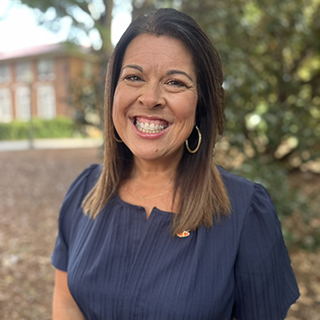
Erica Walters
Program Director
escheff@clemson.edu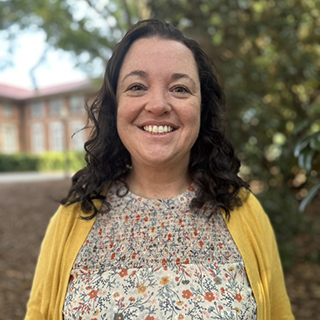
Dr. Tina Randall
Clinical Assistant Professor
knranda@clemson.edu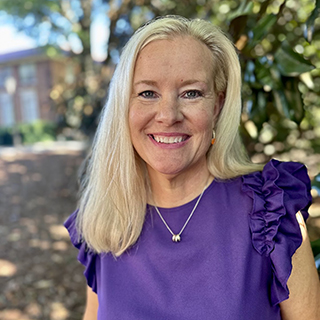
Noel Jensen
Administrative Assistant
njense3@clemson.edu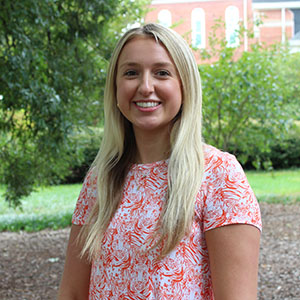
Mary Sydney George
Counselor
msgeorg@clemson.edu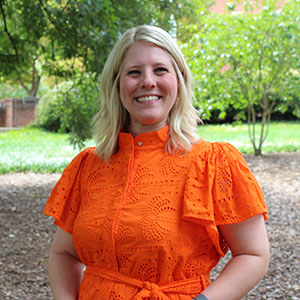
Taylor Chamlee
Freshman Instructor
tchamle@clemson.edu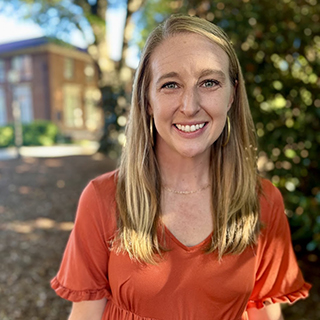
Courtney Dukes
Sophomore Instructor
cmdukes@clemson.edu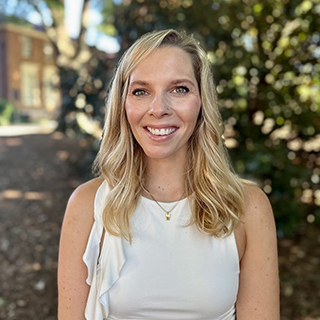
Kim Kempf
Advanced Program Instructor
kzogran@clemson.edu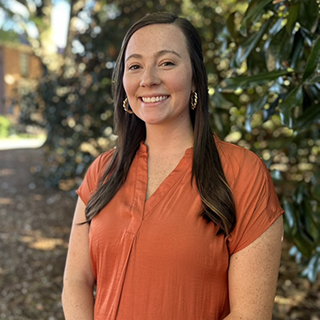
Savannah Barton
Hospitality Certificate Program Instructor
somaste@clemson.edu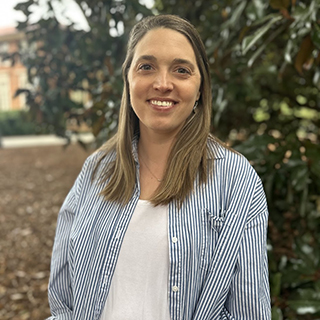
Ali Dubin
PRTM/HCP Instructor
alexsad@clemson.edu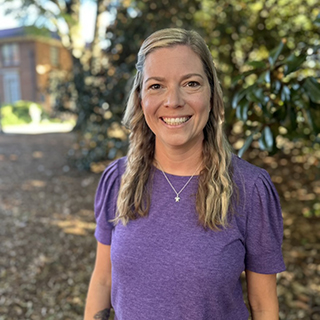
Katie Dobson
Basic Program Employment Instructor
kcooley@clemson.edu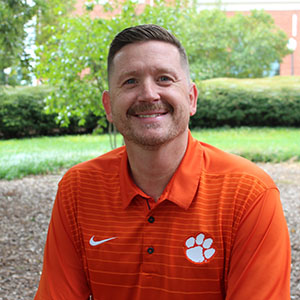
Billy Etter
AP Instructor
wetter@clemson.edu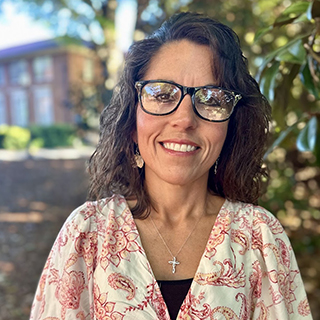
Lisa Wilson
Teaching Assistant
lnwilso@clemson.edu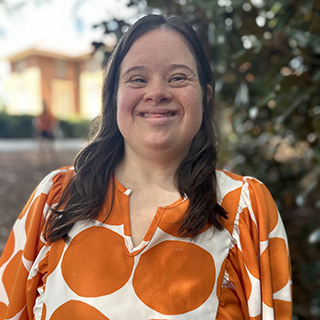
Kendall Montgomery
Administrative Team Assistant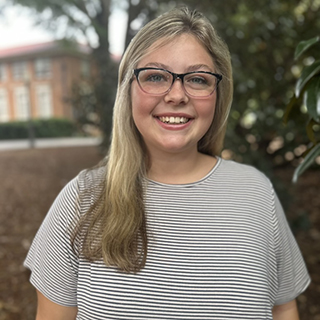
Reagan Smith
Lead Independent Living Assistant
rns3@clemson.edu -
ClemsonLIFE Students
Basic Program
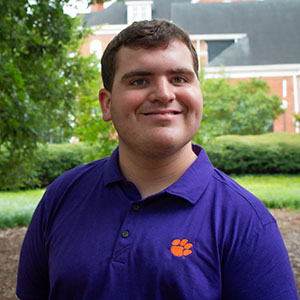
Tommy Brooks - Freshman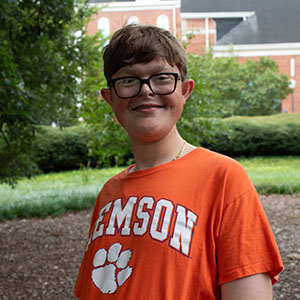
Abbott Conger - Freshman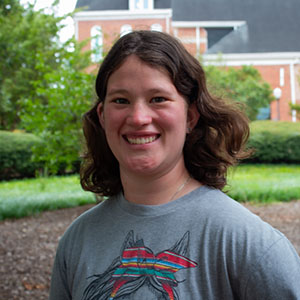
McKenna Cook - Freshman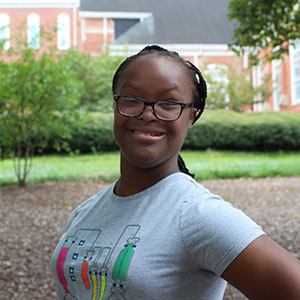
Jocelyn Gaines - Freshman
Malikhi James - Freshman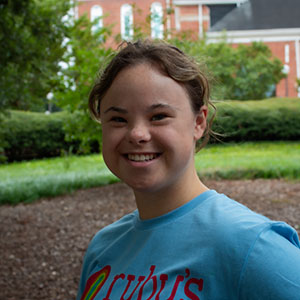
Gabriella Marz - Freshman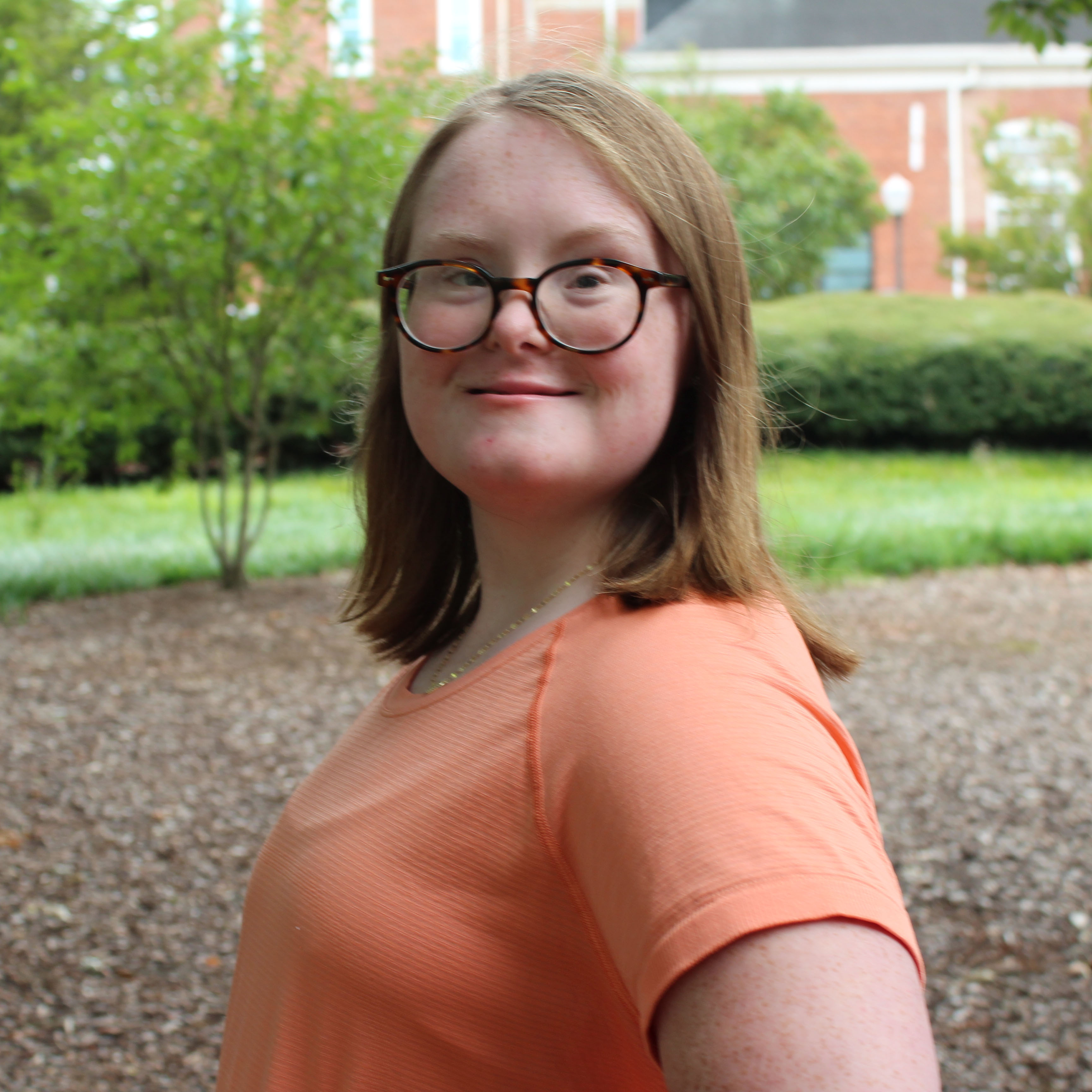
Emma Mays - Freshman
Gaines Tessnier - Freshman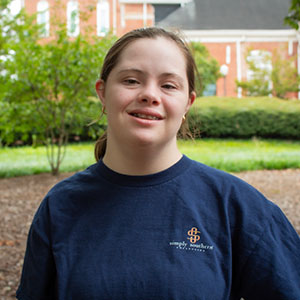
Audrey Trujillo - Freshman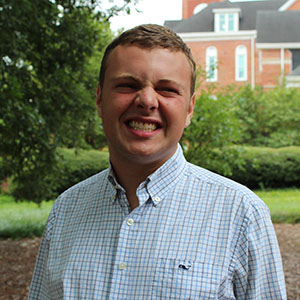
Frankie Waldron - Freshman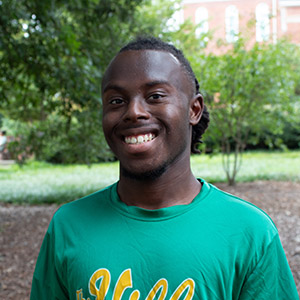
Jamari Waring - FreshmanSophomore Program
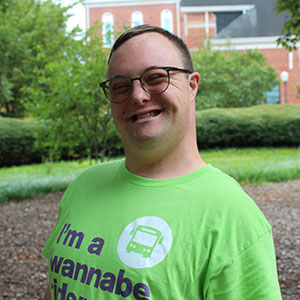
James Bowers - Sophomore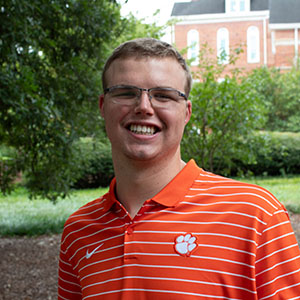
Alexander (Jett) Chilton - Sophomore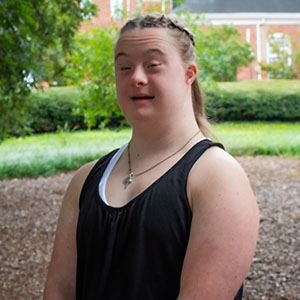
Avery Copenhaver - Sophomore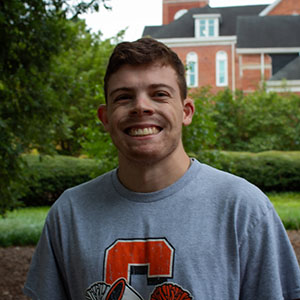
Austin Greenman - Sophomore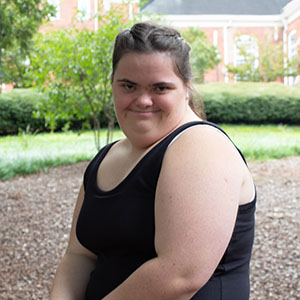
Jamison Hayduk - Sophomore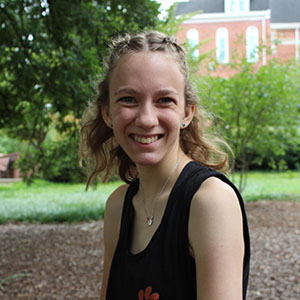
Madeline Hobbs - Sophomore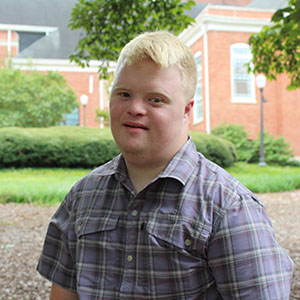
Dylan King - Sophomore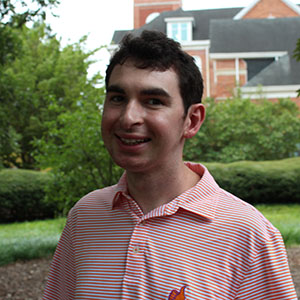
John King - Sophomore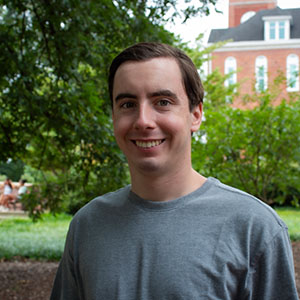
Walker Ryan - Sophomore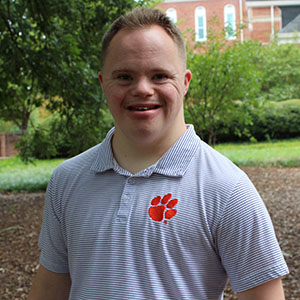
Jeffrey (Nick) Sessions - Sophomore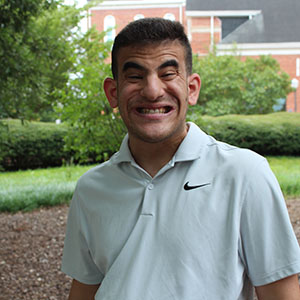
Edward (Eddie) Tabakin - Sophomore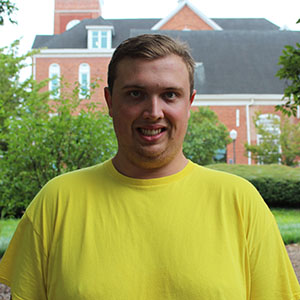
Brooks Taylor - Sophomore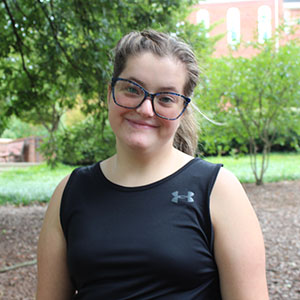
AnneDee Watkins - Sophomore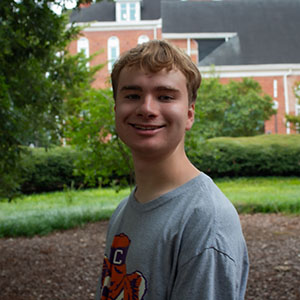
Andrew Yeager - SophomoreAdvanced Program
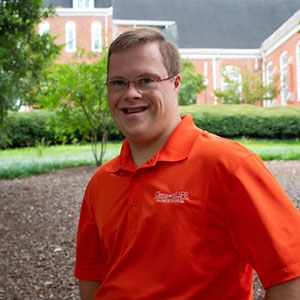
Harper Bennett - Junior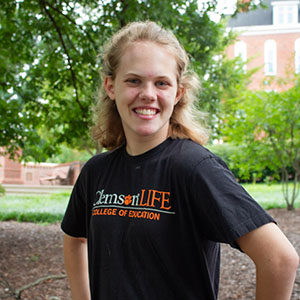
Brice Bessinger - Junior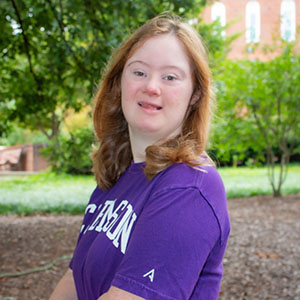
Alyssa Biggs - Junior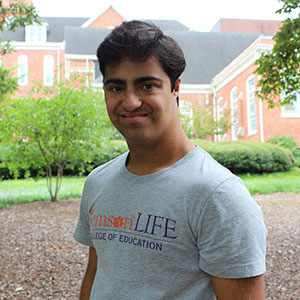
Arnav Dhillon - Junior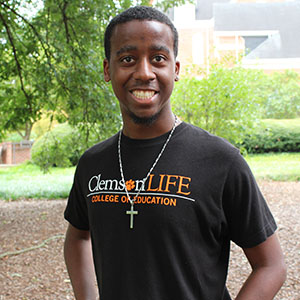
Zylin (Ziggy) Forrester - Junior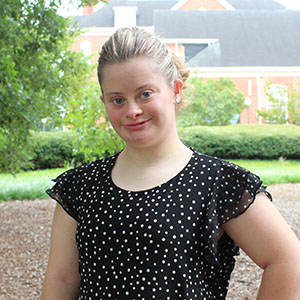
Chloe Galletti - Junior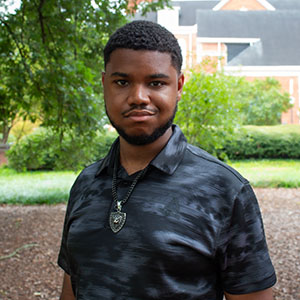
Damon Jerone (DJ) Garrison - Junior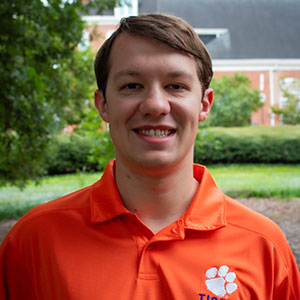
Saylor Lowry - Junior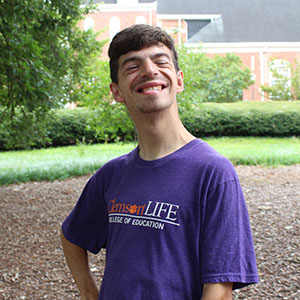
Regan Perella - Junior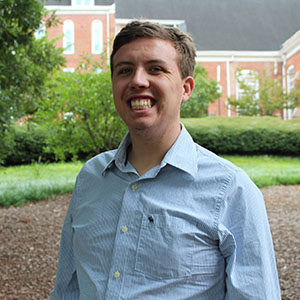
Jordan Cross - Senior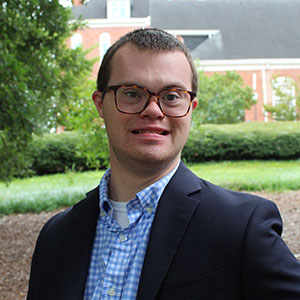
Daniel Doran - Senior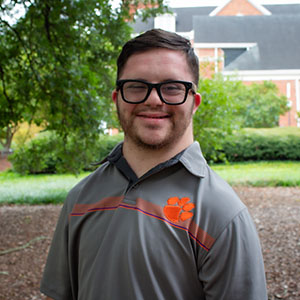
Liam Egan - Senior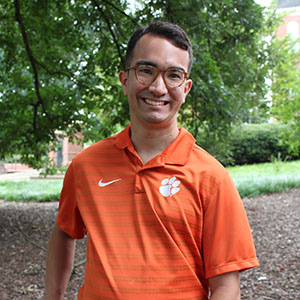
Matthew Lee - Senior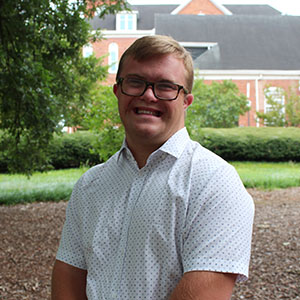
Charlie McGee - Senior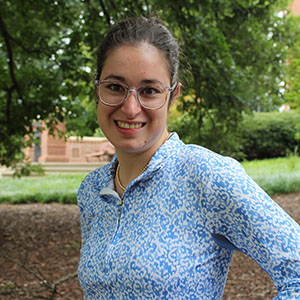
Mary Elizabeth McNair - Senior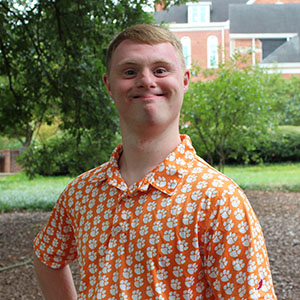
Timothy VanHeusen - SeniorHospitality Certificate Program
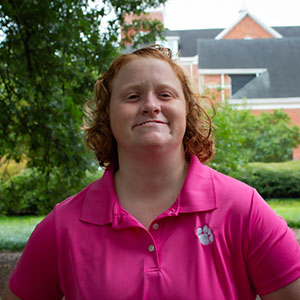
Grace Clements - Year 1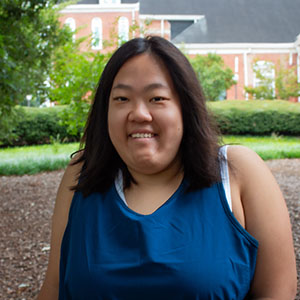
Bethany Dobson - Year 1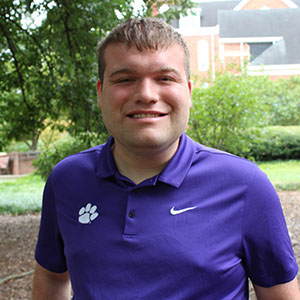
Ross Hicks - Year 1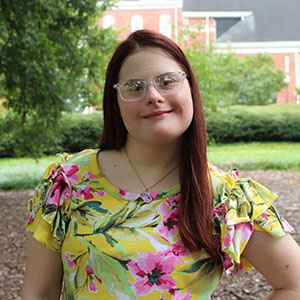
Jess Giddens - Year 1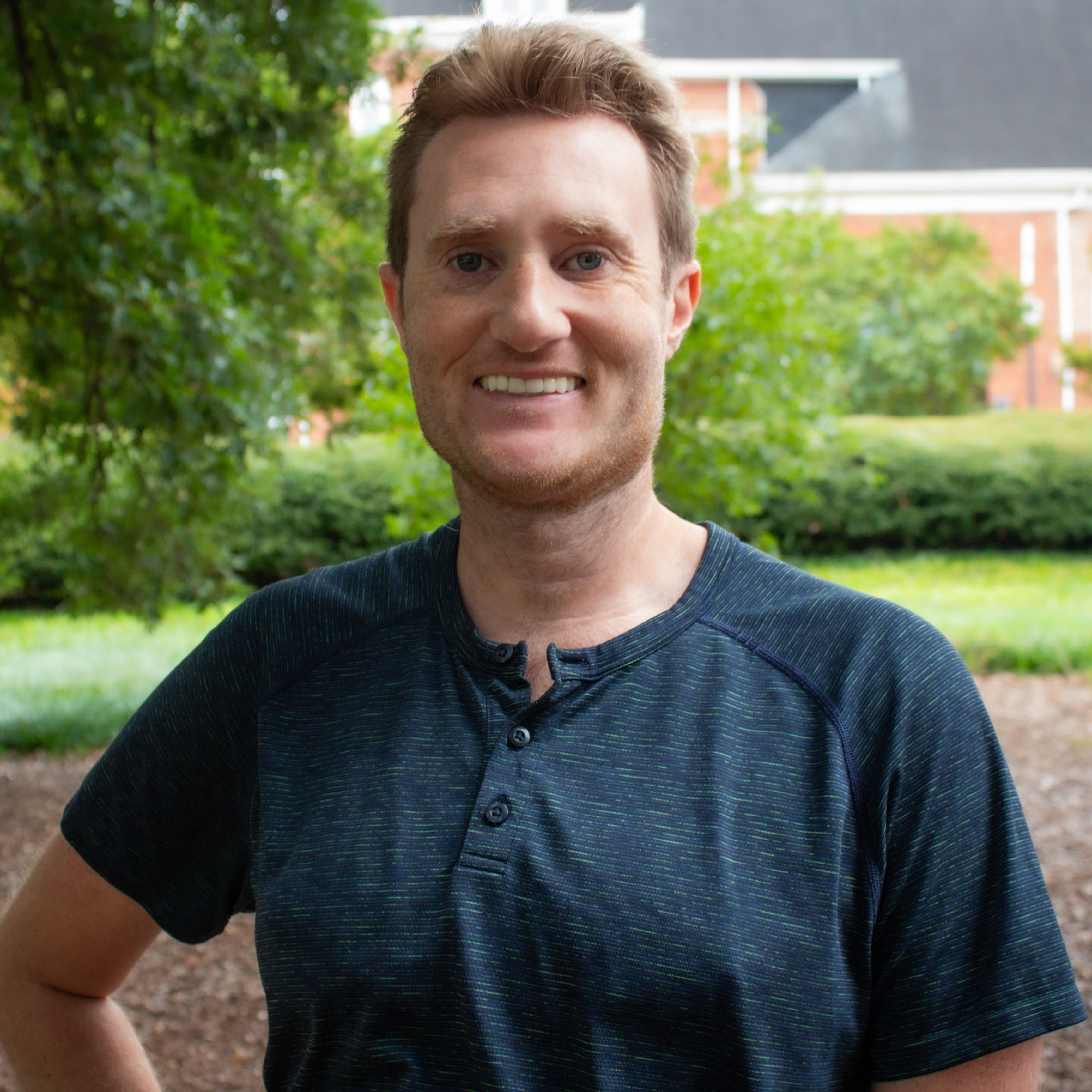
Gavin Lombard - Year 1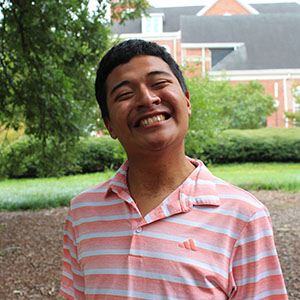
Marco Scala - Year 1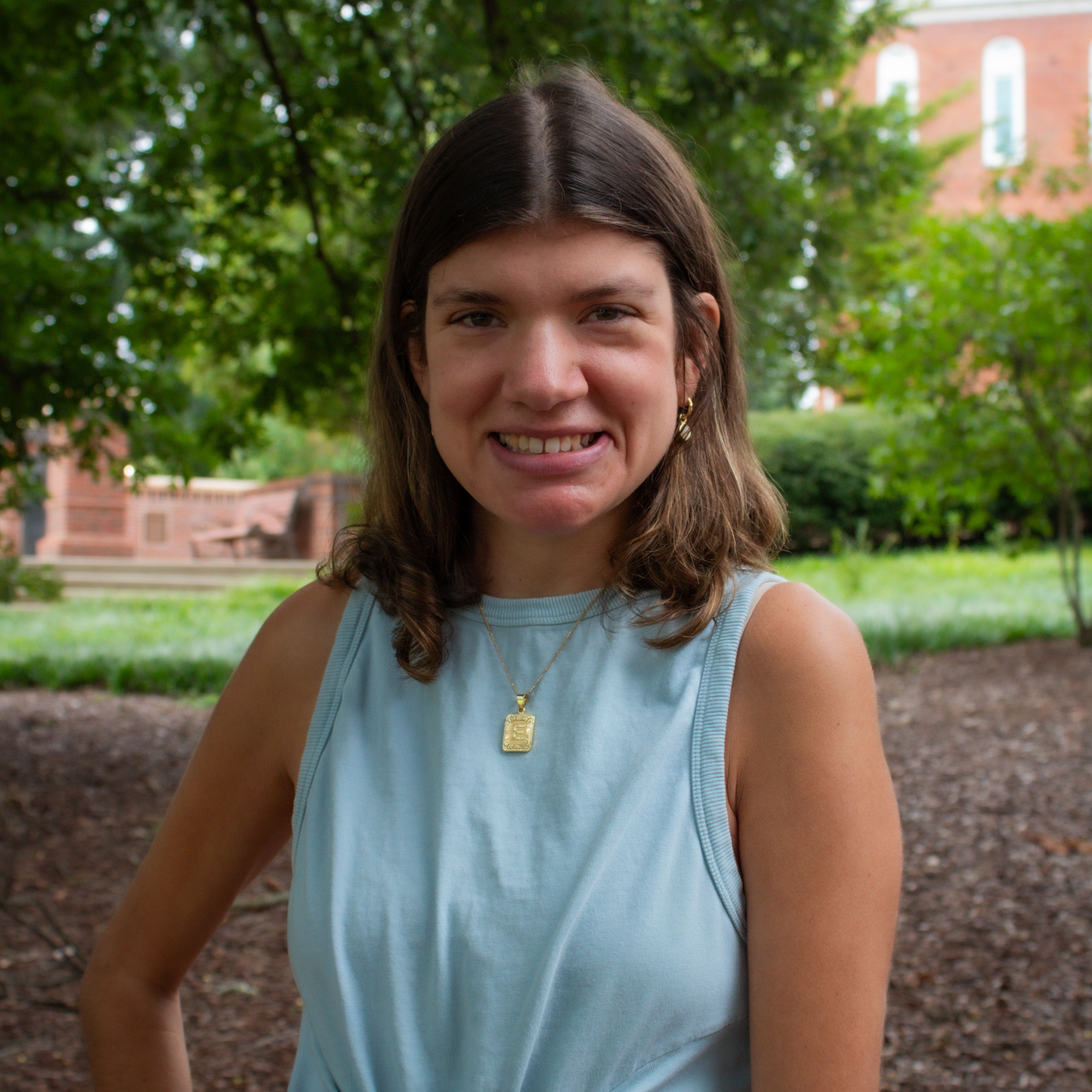
Emily Terzich - Year 1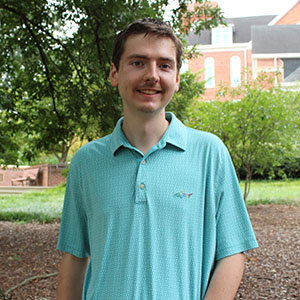
Garrett Anz - Year 2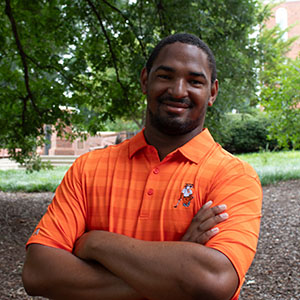
Jon Wesley Barber - Year 2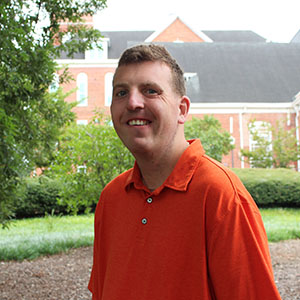
Alex Eveland - Year 2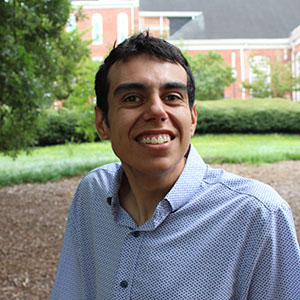
Chris Garcia - Year 2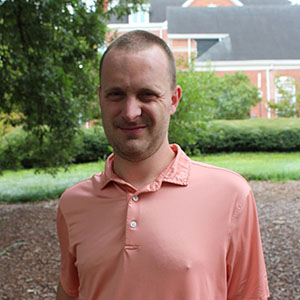
Liam Higgins - Year 2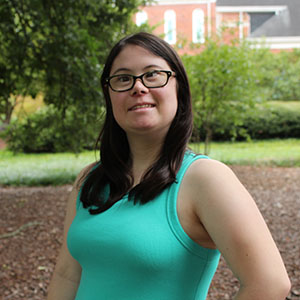
Katherine Jones - Year 2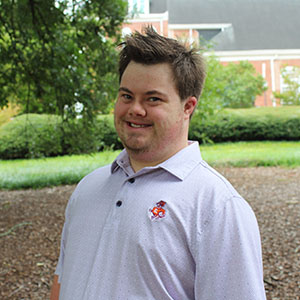
Zachary Kroeger - Year 2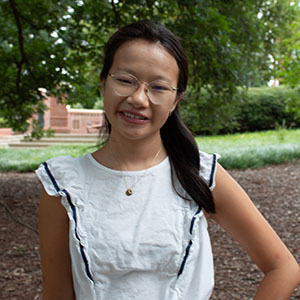
Tabitha Moran - Year 2
Thank you for helping our Tigers come to LIFE!
